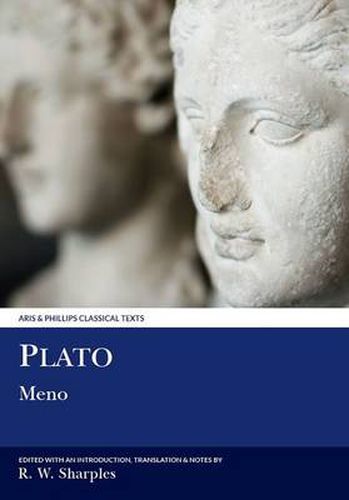Readings Newsletter
Become a Readings Member to make your shopping experience even easier.
Sign in or sign up for free!
You’re not far away from qualifying for FREE standard shipping within Australia
You’ve qualified for FREE standard shipping within Australia
The cart is loading…






Plato’s Meno is the dialogue which more than any other occupies a transitional position between the early Socratic dialogues and the developed middle period theory of the Phaedo, Symposium and Republic. It is thus of particular interest for the insights that it gives us into the process by which Plato arrived at that theory. The issues which it raises are philosophically interesting in themselves: how can we know that we have the right answer to a question, unless we knew what the answer was before we asked the question in the first place? Is excellence (arete) something that we can acquire by being taught, or is it something that we are born with? And the dialogue is of historical interest for the evidence it provides, both for ancient Greek notions of what constitutes excellence, and for contemporary attitudes to the Sophists, who claimed to teach excellence and took larger fees for doing so.
$9.00 standard shipping within Australia
FREE standard shipping within Australia for orders over $100.00
Express & International shipping calculated at checkout
Plato’s Meno is the dialogue which more than any other occupies a transitional position between the early Socratic dialogues and the developed middle period theory of the Phaedo, Symposium and Republic. It is thus of particular interest for the insights that it gives us into the process by which Plato arrived at that theory. The issues which it raises are philosophically interesting in themselves: how can we know that we have the right answer to a question, unless we knew what the answer was before we asked the question in the first place? Is excellence (arete) something that we can acquire by being taught, or is it something that we are born with? And the dialogue is of historical interest for the evidence it provides, both for ancient Greek notions of what constitutes excellence, and for contemporary attitudes to the Sophists, who claimed to teach excellence and took larger fees for doing so.